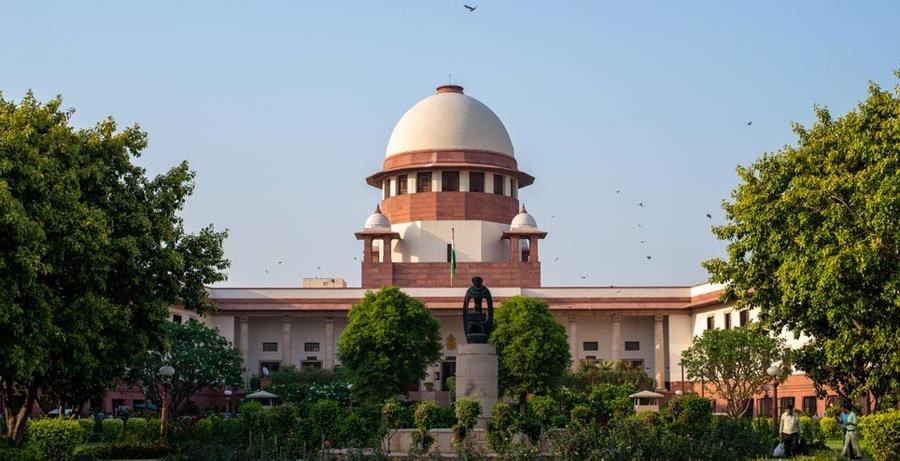
7 member SC bench begins hearing on AMU minority status
text_fieldsNew Delhi: The Supreme Court said on Tuesday, as it began hearing the complex matter of Aligarh Muslim University's (AMU) minority status, that an educational institution's mere regulation by statute does not deprive it of its minority institution status.
Article 30, which addresses minorities' rights to establish and administer educational institutions, was cited by a seven-judge constitution panel led by Chief Justice D Y Chandrachud.
The apex court said in order to make Article 30 effective, there was no need for absolute administration by a minority group to claim such a status.
“Now, there is no absolute standard of administration that you must administer 100 per cent… So, to make Article 30 effective, we do not have to postulate that the administration by the minority has to be an absolute administration.
“In that sense, today in a regulated society, in a regulated state, nothing is absolute. Virtually every aspect of life is regulated in some way or the other. So, merely because the right to administer is regulated by a statute and, to a certain extent is not untrammelled, does not detract from the minority character of the institution,” CJI Chandrachud observed during the hearing which continued through the day.
The top court had on February 12, 2019, referred to a seven-judge bench the hugely contentious issue of the minority status of AMU. A similar reference was also made in 1981.
The issue of AMU’s minority status has been caught in a legal maze for the last several decades.
A five-judge constitution bench had in the S Azeez Basha versus Union of India case in 1967 held that since the Aligarh Muslim University was central, it cannot be considered a minority institution.
However, the fabled institution established in 1875 got back its minority status when Parliament passed the AMU (Amendment) Act in 1981.
In January 2006, the Allahabad High Court struck down the provision of the 1981 law by which the university was accorded minority status.
The Congress-led UPA government at the Centre moved in an appeal against the Allahabad High Court order. The university also filed a separate petition against it.
The NDA government spearheaded by the BJP told the Supreme Court in 2016 that it would withdraw the appeal filed by the erstwhile UPA dispensation. It had cited the apex court’s 1967 judgement in the S Azeez Basha case to claim that AMU was not a minority institution since it was a central university funded by the government.
During the hearing on Tuesday, the constitution bench, also comprising Justices Sanjiv Khanna, Surya Kant, J B Pardiwala, Dipankar Datta, Manoj Misra and Satish Chandra Sharma, observed the State was entitled to regulate the administration of a minority educational institution in the public interest to ensure conditions of service of teachers were fair and staff of the institution was not maltreated.
It said the State can impose administrative requirements like certain standards with regard to curriculum and examinations that would apply across the board.
“Three things are very clear, you don’t have to be administering only religious courses. You can be administering a purely secular education….the law is not that you have to admit only students of your community. You can admit students of all communities,” the CJI said.
Senior advocate Rajeev Dhavan, who opened the arguments for the varsity, spoke about the two referral orders of the Supreme Court in 1981 and 2019.
“I want to read the two reference orders to your lordship because the significant thing in the two reference orders is that normally when a reference is made, the points of reference are itemised by your lordships. This is not being done in this case,” he said.
Referring to linguistic and religious diversity in the country, Dhavan said, “I think your lordships will bear in mind that India has a diversity which is more than continents or any other country in the world.” He said the apex court is deciding something which goes to the “heart of Indian secularism and to the heart of the diversity of India” both in terms of language and religion.
“Throughout the world, there are minority state institutions… If you look at America across the board and if you look at India today, private institutions and minority institutions are the heart and soul of Indian education. You cannot deny it,” the senior advocate said.
The arguments remained inconclusive and will continue on Wednesday.
With PTI inputs






















